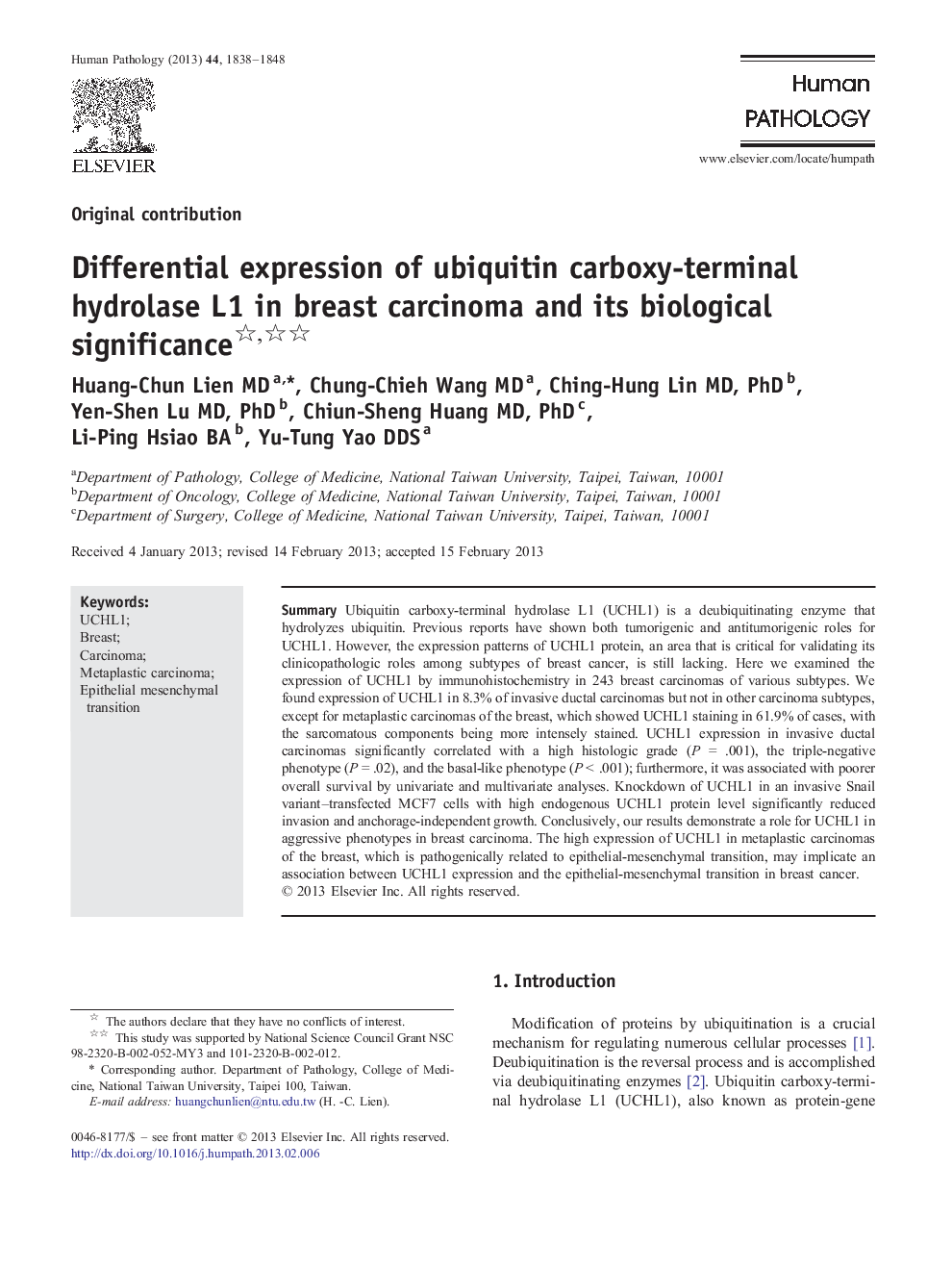| Article ID | Journal | Published Year | Pages | File Type |
|---|---|---|---|---|
| 4133029 | Human Pathology | 2013 | 11 Pages |
SummaryUbiquitin carboxy-terminal hydrolase L1 (UCHL1) is a deubiquitinating enzyme that hydrolyzes ubiquitin. Previous reports have shown both tumorigenic and antitumorigenic roles for UCHL1. However, the expression patterns of UCHL1 protein, an area that is critical for validating its clinicopathologic roles among subtypes of breast cancer, is still lacking. Here we examined the expression of UCHL1 by immunohistochemistry in 243 breast carcinomas of various subtypes. We found expression of UCHL1 in 8.3% of invasive ductal carcinomas but not in other carcinoma subtypes, except for metaplastic carcinomas of the breast, which showed UCHL1 staining in 61.9% of cases, with the sarcomatous components being more intensely stained. UCHL1 expression in invasive ductal carcinomas significantly correlated with a high histologic grade (P = .001), the triple-negative phenotype (P = .02), and the basal-like phenotype (P < .001); furthermore, it was associated with poorer overall survival by univariate and multivariate analyses. Knockdown of UCHL1 in an invasive Snail variant–transfected MCF7 cells with high endogenous UCHL1 protein level significantly reduced invasion and anchorage-independent growth. Conclusively, our results demonstrate a role for UCHL1 in aggressive phenotypes in breast carcinoma. The high expression of UCHL1 in metaplastic carcinomas of the breast, which is pathogenically related to epithelial-mesenchymal transition, may implicate an association between UCHL1 expression and the epithelial-mesenchymal transition in breast cancer.
